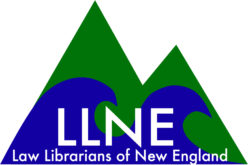Tips for Writing a Policy
One of the best tools in your toolbox for avoiding the unauthorized practice of law is to have a policy in place on providing legal reference. When drafting such a policy, you may want to include the following:
- An explanation of why reference librarians cannot give legal advice;
- An explanation of what your library considers to be legal advice;
- A link to a local, trusted lawyer referral service such as a local bar association;
- The contact information for the nearest law library open to the public;
- A link to local legal aid offices and/or law school clinics.
Once you’ve finalized your policy, use it and refer to it often.
Sample Policies
Below are some examples to consider from public and academic law libraries:
University of Wisconsin Law Library
As librarians, we cannot provide legal advice or interpretation of the law because to do so would be considered the unauthorized practice of law, which is illegal. If you need someone who will research and interpret the law for you, consider talking to an attorney. For information on identifying and locating attorneys, please consult ourLow Cost Legal Resources in Dane County Guide.The Wisconsin State Bar Lawyer Referral and Information Service, Findlaw, Justia, and Martindale.com are other options
University of Connecticut Law Library
Library staff may not give legal advice. If help is needed to resolve a legal problem, or interpret the law, you should consult a practicing attorney.
Legal advice includes:
- Reading a statute, part of a case, or a legal definition from dictionary;
- Helping the patron to understand a case or statute;
- Telling what forms need to be filed in court;
- Helping to fill out a form;
- Helping with wording on a court document, and the like.
The reference librarian will refrain from helping with interpretation in any way of a case or statute. It is not advisable to read statutes and case materials over the phone, or to help a patron understand a legal concept or piece of procedure. It is just as improper to help a patron with filling out a form or determining court procedure.
In the course of legal reference services, librarians are asked a multitude of questions about the law. Most questions may be answered properly by directing the patron to sources of law, both primary and secondary. In other instances, the reference librarian may be called upon to explain in detail how to use a source, and how the source relates to other sources. It is acceptable in such circumstances to explain the types of annotations found in annotated primary sources, how various indexing schemes work, where headnotes come from and what they do; it is acceptable to read over the phone from a non-primary source, and to suggest that a patron might look under alternative topical headings, along with specific suggestions.
Public Law Library of King County
The Law Library staff will respond to telephone and email inquiries regarding the Law Library’s holdings on a particular subject and will suggest alternative sources for materials not in the collection. Time permitting, the staff will respond to specific short answer requests. However, the staff will not read statutes, regulations, court rules, or extended passages from other sources over the phone. Patrons in the Law Library receive priority over telephone and email patrons.
Because of the ethical and legal implications surrounding the unauthorized practice of the law, patrons must be advised that the Law Library staff may not engage in the following activities: perform legal research; answer a legal question; advise any patron on the status of the law on a particular issue; recommend that any patron contact a particular attorney; explain legal procedure, court rules or jurisdiction; or interpret the text of a statute, legal opinion, or administrative regulation.
Orange County Public Law Library
It is against Library policy for the reference staff to give legal advice or to do anything which might constitute the unauthorized practice of law.
The staff is unable to interpret statutes, cases, or regulations, or advise patrons regarding their legal rights. They may not recommend which legal forms a person should use or assist persons in filling out legal forms. The staff will, however, help laymen with legal terminology and the meaning of legal citations and fulfill their primary function, which is to help patrons find the materials they need so that patrons may do their own research. Within these limits, the staff will provide assistance wherever possible to meet the reference needs of patrons, whether laymen or attorneys, but patrons should not expect the library staff to do research.
